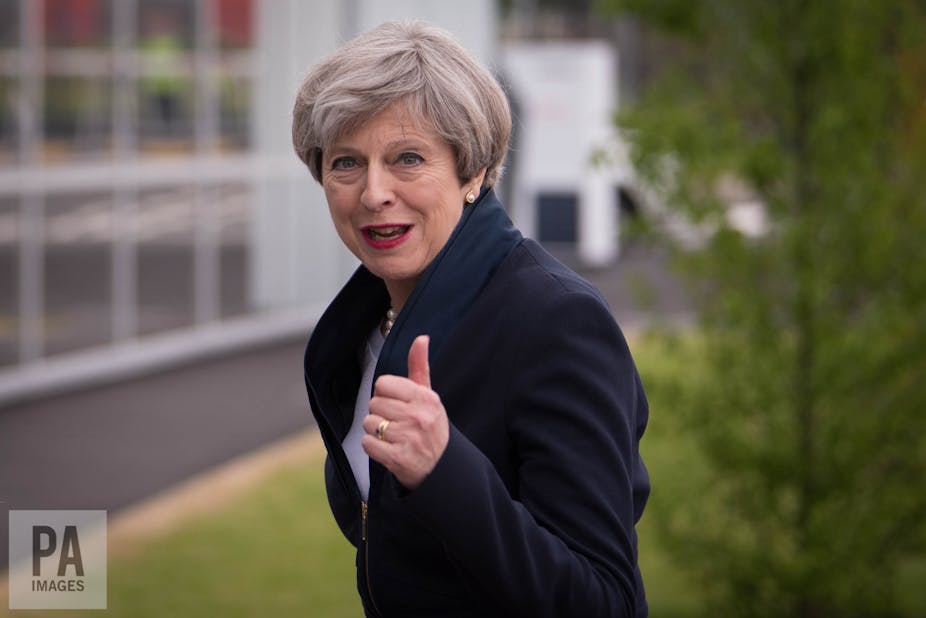Theresa May’s (not the Conservative Party’s – more on that later) 2017 general election manifesto is based on dealing with “Five Great Challenges”. The plan is to ensure a strong economy, manage Brexit, tackle enduring social divisions, support an ageing society and confront technological change. However, underneath those five issues, there are other clear themes emerging.
First, this is indeed very much “Theresa May’s Manifesto” – and that cannot be strongly enough emphasised (a bit like “strong and stable government”). As has been seen earlier in the campaign with posters focusing on Theresa May’s team, the manifesto leaves no doubt that the public is being asked to vote for not merely the Conservative Party, but “Theresa May’s Conservatives”. It’s a phrase used repeatedly when summing up the key points of the manifesto.
Indeed, where Jeremy Corbyn is mentioned just once in the entire 128 pages of the Labour Party’s manifesto, Theresa May is mentioned no fewer than 16 times in Theresa May’s Manifesto. Clearly, the people behind the Conservative campaign have decided that while people may still have doubts about the party, they are far more comfortable voting for May.
This is not (just) ego on May’s part. It’s backed up by evidence. A recent poll found that 39% of respondents disapproved of The Conservative party, compared to 37% approving. By contrast, May’s personal approval rating is at 43% with 34% disapproving. The poll also found that “only 26% of the public approve of Mr Corbyn, while 49% disapprove”.

And although it has been claimed, with justification, that the Conservatives have been keen to contrast the supposed strength and competence of May against the “chaos” of Corbyn’s bid for power, another key message from Theresa May’s Manifesto is that the opposition is utterly unimportant. The Labour party manifesto mentions the Conservative Party a full 68 times. The Conservative manifesto does not make a single mention of Labour or Corbyn. This is noteworthy as it shows just how unthreatening the Conservatives find Corbyn’s Labour Party.
Forgetting the nasty party
Indeed, as the opposition doesn’t seem to exist at all in the world of the manifesto, its ideological and electoral territory is ripe for colonisation. The Conservative manifesto is dominated by rhetoric focusing on social justice and fairness – most notable in the central idea of making Britain into “The Great Meritocracy”.
The manifesto commits Theresa May’s Conservatives to “not only guarantee but enhance workers’ rights and protections”. There are even echoes of Labour’s clause IV. This central part of Labour identity calls for the creation of “a community in which power, wealth and opportunity are in the hands of the many, not the few”.
The manifesto calls for an economy where “wealth and opportunity are spread across every community in the United Kingdom, not just the most prosperous places in London and the south east”. It is even making an overt grab for Labour’s traditional ownership of anti-discrimination and equality by stating that “we abhor social division, injustice, unfairness and inequality”.
It seems that this is the culmination of a journey Theresa May started in 2002, when she shocked Conservative party conference delegates by telling them that “our base is too narrow and so, occasionally, are our sympathies. You know what some people call us: the nasty party”. This manifesto is clearly an attempt to finally put that label to rest.

